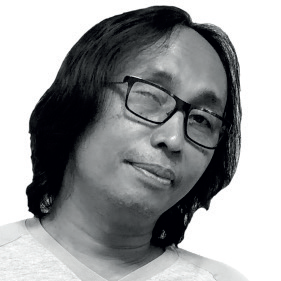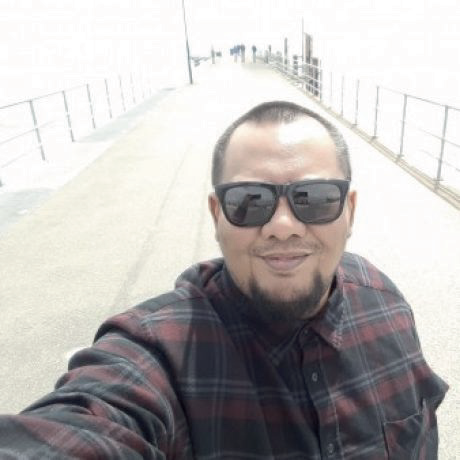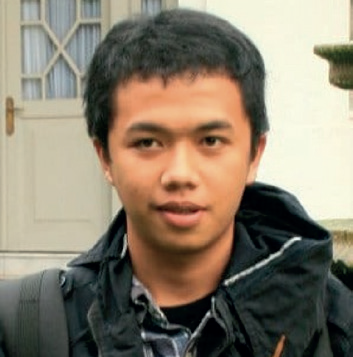
Wildlife crimes, such as poaching, private ownership, trading, smuggling even killing are forgotten issues in Indonesia. It can be seen how these topics are still under-reported in national media outlets.
In fact, wildlife crime plays a substantial role in the extinction of wild animals, particularly in Indonesia. In terms of profit, wildlife crime now ranks among trafficking in drugs, arms and human beings. Southeast Asia has been seen as the largest market for illegal wildlife in the world, with Indonesia as a key vital because of its vast and rich biodiversity.
The illegal trade of protected animals in Indonesia is estimated to be worth IDR13 trillion (about USD 1 billion) per year. This country is also considered to be an illegal producer and market of protected animals. Many notable figures who keep exotic species, even those obtained from abroad, have demonstrated this behavior. Unfortunately, Indonesian law is still relatively weak to protect wild animals that are brought from abroad, even if their origin country protects them.
That’s why the unearthed wildlife problem so far has only shown the tip of the iceberg without exposing its bigger problem.
With those aforementioned issues, Garda Animalia and Auriga Nusantara initiate Bela Satwa Project (Defending the Wildlife Project). A scheme that supports the disclosure of wildlife crime that occurs in Indonesia.
General requirement
Workshop
Participants were limited to 53 individual from journalists and college students with background, experience, and a good understanding of Journalism or Investigation.
How to be a participant:
Fellowship grants
Will be given to 15 individuals or groups that have completed the workshop and passed the proposal selection.
How to get the grant:
March - April 2022 — Reporting proposal submission
11-15 April 2022 — Workshop
The workshop was held online and was exclusive. 53 Journalists from North Sumatera, West Sumatera, Bengkulu, Lampung, Special Capital Region of Jakarta, West Java, Yogyakarta, East Java, Bali, West Nusa Tenggara, South Kalimantan, South Sulawesi, South East Sulawesi, Maluku and Papua.
On day 1, the workshop discussed examining data. A speaker: Niko (Garda Animalia) who presented the Data on Indonesia Illegal Animal Trade; Roni Saputra (Auriga Nusantara) talked about Wildlife Protection Law in Indonesia; Sulih Primara (Auriga Nusantara) who served a topic about Export Data of Indonesia’s Parrot; and Supintri Yohar (Auriga Nusantara) spoke about Indonesia’s Wildlife Habitat Condition.
Data Journalism was discussed on day 2. The speakers: Aqwam Hanifa (Narasi) who spoke about OSINT & Wildlife Cybercrime Trafficking; and Ramada Febrian (Auriga Nusantara) on the topic of Data Visualization.
On Day 3, the workshop discussed Investigation Journalism with a speaker: Yosep Suprayogi (Senior Journalist of TEMPO) who spoke about Planning an Investigative Report; and Sandy Indra Pratama (Editor in Chief betahita.id) who talked about Investigative Reporting Safeguard Protocol.
On day 4, all the participants had a simulation of making a story outline and reporting proposals.
9 May 2022 — Grantee announcement
After the selection of 23 proposals submitted by the candidate, Garda Animalia, and Auriga Nusantara along with all the mentors had decided on 17 applicants as a fellow of the 2022 Bela Satwa Project. 5 of them are collaborative reporting.
The fellows came from North Sumatera, West Sumatera, Bengkulu, Lampung, Jakarta, West Java, Yogyakarta, East Java, West Nusa Tenggara, South Kalimantan, South Sulawesi, South East Sulawesi , Maluku and Papua.
Collaborative reporting is used for a similar proposal with the same themes, places, targets for monitoring, and else. Each fellow still needs to pursue their reporting plan but sources and information can be used together.
The 2022 Defending the Wildlife Project had selected various topics such as the illegal trade of certain animals, overharvesting of marine species, and also monitoring of the animal market.
23-27 May 2022 — Coaching clinic
As many as 23 journalists participated in the Defending Animal Investigation coaching clinic in bogor from 24 – 26 May 2022. Participants came from many province like North Sumatra, West Sumatra, Bengkulu, Lampung, DKI Jakarta, West Java, Special Region of Yogyakarta, East Java, Bali, West Nusa Tenggara, South Kalimantan, South Sulawesi, Southeast Sulawesi, Maluku, and Papua.
Coaching clinic materials to provide participants to sharpen coverage issues, enrichment, and prepare coverage budgets. The speaker: Sandy Indra Pratama (Editor in chief betahita.id), Aqwam Fiazmi Hanifan (Narasi), and Yosep Suprayogi (Senior Journalist of TEMPO).
The first day, the activity start with a refreshment about ideas, angles, and outlines covarage. Refreshment provided by Sandy. At the end of the first day, all participants is ass igned to complete the final outline of their coverage.
On the second day, Sandy gave refreshment about Investigation techniques. After that, participants were asked to research for the material by interviewing persons and research. Participants then present their results.
On the third day, Sandy gave material on the Budget Plan (RAB) and technical logbook filling. Participants were assigned to make an budget planning based on the outline of their coverage.
June - July — Field reporting and companionship
August 2022 - Series of publication
September 2022 — Public Dialogue
Defending the Wildlife Project provides reporting grants for all the selected fellows, whether it’s individual groups or collaboration. Individual grants are stand-alone reporting submitted by one participant; while group grants are given to a couple of individuals who submitted one reporting collectively; and collaborative reporting is used for 2 or 3 individuals reporting plan that has particular similarities.
The amount of the reporting grants are defined based on the category (individuals or group) and any technical consideration (difficulties, accessibility, dangers, etc) such as:
Each fellow has fully funded rights and companionship from mentors or particular expertise until their story is published.

Yosep Suprayogi
TEMPO’s Senior Journalist. He was a Managing Editor of the Tempo Magazine Investigation Section. In 2009, Yosep won three prestigious awards in journalism, two of which were for his coverage: “Akal-akalan Biaya Admin Listrik (Electricity Admin Fee Trick)” was awarded Anugerah Mochtar Lubis Award and “Lambang dalam Pusaran Mafia Purbakala (Lambang in the Eye of Archaeological Mafia Storm)” which won Anugerah Adiwarta Sampoerna.
He is currently a Head of Teras.id, a flagship of TEMPO. Yosep also has activity as a Journalism Teacher.

Sandy Indra Pratama
Senior Journalist with a vast experience in investigative reporting. He has been a Journalist at Republika, TEMPO Magaazine, CNNIndonesia.com, Beritaga.id, and lead HukumOnline Editorial team.
Currently Sandy is the Editor in Chief of Betahita.id, environmental news outlet. He also teaching Journalism at Multimedia Nusantara University, Telkom University, and Stikom Bandung.

Aqwam F. Hanifan
Started his journalism career in Tirto.id. Produced many in-depth and investigation stories. Now he serves as Investigation Program Producer in Narasi Newsroom. Aqwam also active as an OSINT (Open Source Inteligence) researcher.
Pasopati Project is designed as a platform to present information, data, and analysis regarding issues related to forestry, oil palm, and mining in Indonesia. This website focuses on delivering critical perspectives and insights on these issues, including related actors and government policies.
The Pasopati Project website is intended to fulfill one of Yayasan Auriga’s goals: to eliminate destructive actions related to natural resource exploitation in Indonesia.
The site is managed by Auriga, with particular analyses conducted in conjunction with civil society coalitions.